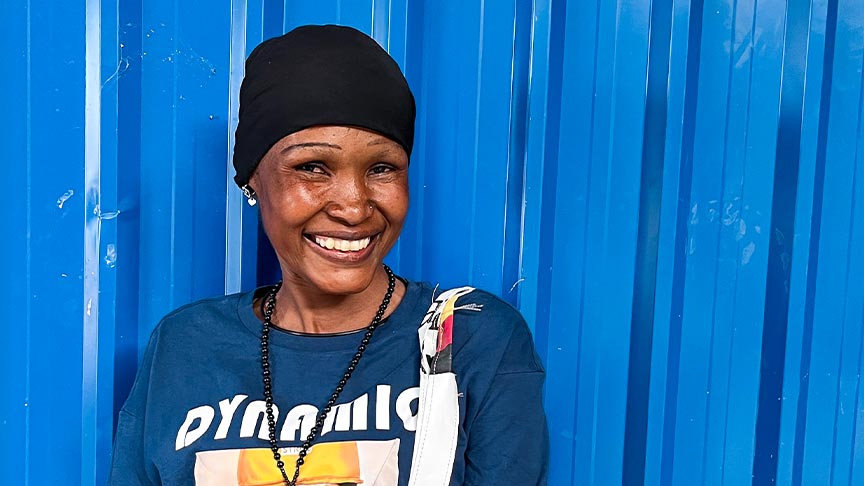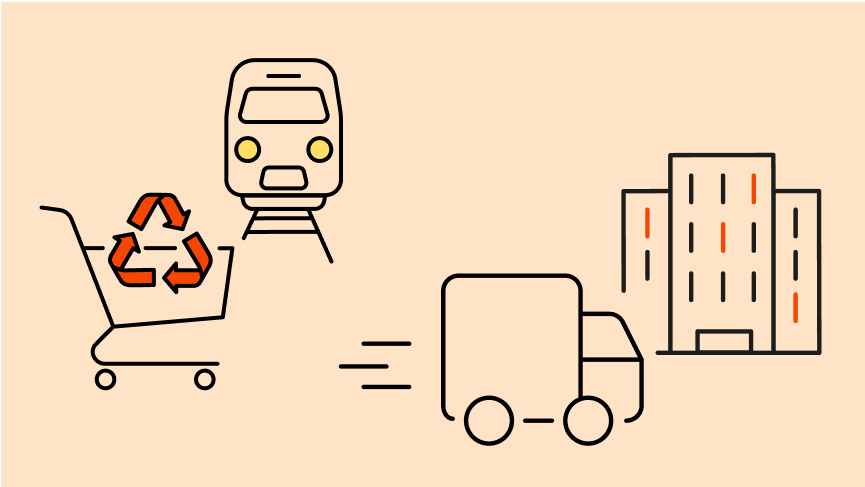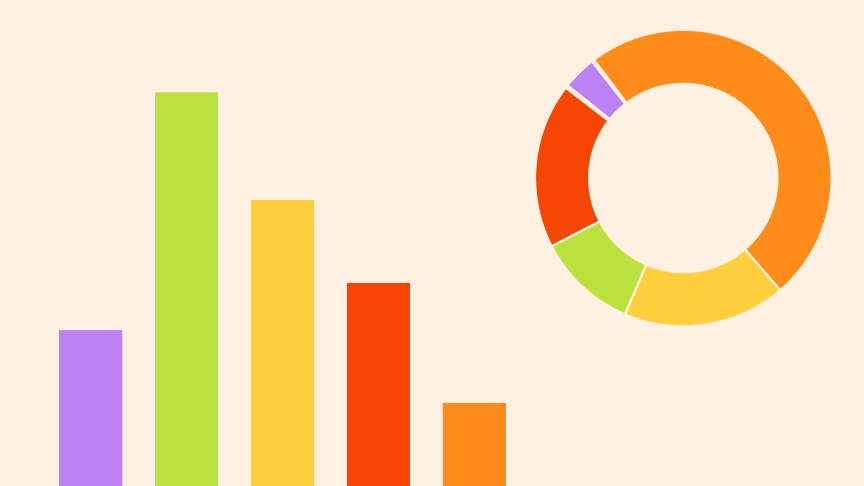Because conditions in Germany and in the other countries in which GIZ operates are very different, we use two distinct environmental management systems – one in Germany and one in the field structure. The management systems are based on GIZ’s Environmental Mission Statement.
Environmental management system in Germany based on EMAS
In Germany, GIZ uses the Eco-Management and Audit Scheme (EMAS), which is an extension of the ISO 14001 environmental management standard. EMAS is the world’s most exacting certification system for corporate environmental management and requires companies to make continuous, annually verified improvements in their environmental performance. The overriding priority is to steadily reduce GIZ’s environmental impacts and provide evidence of this reduction. We draw up an annual environmental audit that sets out progress made towards achieving our environmental goals. This is presented to the responsible Chamber of Commerce and Industry (IHK) in the form of a declaration, having undergone a prior external audit by EMAS environmental auditors. By participating in the EMAS scheme, GIZ undertakes to steadily improve its environmental performance and comply with all applicable environmental regulations at locations covered by EMAS.
The Chair of the GIZ Management Board is the company’s EMAS environmental management representative. Our Environmental Management Officer is based in GIZ’s Sustainability Office. The Officer launches and monitors all necessary steps within the company that are relevant for the EMAS system and coordinates implementation of environment-related measures laid out in the Sustainability Programme in close consultation with other units. Our registered offices in Bonn and Eschborn and our representation in Berlin first gained EMAS certification in 2013. Other buildings in Berlin, Bonn and Feldafing were included in the scheme over subsequent years.
Environmental management in partner countries: the Corporate Sustainability Handprint®
The Corporate Sustainability Handprint® (CSH) is used to record progress achieved in the field of sustainability in the countries in which GIZ operates. It provides a uniform framework for corporate sustainability. GIZ has used the CSH to collect climate and environmental data every year in its partner countries and country offices since 2018. Although the quality and availability of data are still not comparable with Germany, the situation is improving steadily. When we record environmental data, we distinguish between an ‘environmental footprint’ and an ‘environmental handprint’. While an environmental footprint measures factors such as water consumption and CO2 emissions, the handprint documents active contributions towards sustainability, such as the installation of solar panels rather than generators or the shared use of project vehicles. The handprint also covers raising awareness about health issues, diversity and human rights, and ensuring sustainable procurement. GIZ encourages its teams on the ground to optimise their sustainability performance.
Resource efficiency targets
GIZ’s environmental and climate targets are set out in the Sustainability Programme 2021–2025 (see also Criterion 3: Objectives). A few examples are given below.
Energy:
- GIZ intends to reduce the energy it consumes by 20 per cent per staff member in Germany and by 10 per cent per staff member outside Germany by 2025, taking 2019 as the base year. This is to be achieved by campaigns raising awareness of the need to save energy in the workplace and by further developing modern working models, putting in place energy saving measures and analysing energy consumption.
- To promote sustainable development, GIZ also intends to make more use of renewable energy. The aim is to raise the installed capacity of our photovoltaic plants in Germany to 150 kWp and outside Germany to 400 kWp by 2025.
- Mobility: Wherever possible, business travel is to be replaced by online meetings or reduced by grouping appointments. These approaches worked well during the COVID-19 pandemic.
- Coolants: By 2025, the use of coolants with a particularly high global warming potential (GWP) is to be reduced by 10 per cent outside Germany and by 20 per cent in Germany. The implementation plan sets out the identification of all coolants used as a first step. After the refitting plans have been drawn up, modern plants using climate-friendly coolants will be the main thrust in achieving the target.
Resources
- The carbon footprint of our digital operations will be continuously reduced by using IT equipment for longer, by carrying out repairs as required and finally by recycling equipment. To this end, equipment in Germany is to be better repaired and defective equipment is to be recycled. Outside Germany too, the foundations are to be laid for recycling infrastructure.
- Paper: By 2025, the volume of paper used for printing in Germany is to be cut by 65 per cent, while a target of 40 per cent has been set for outside Germany. The main measures involve training staff, making more use of software applications and providing information internally to raise awareness of digital storage options.
Measures
Energy
Electric power: Almost all the power used at GIZ locations in Germany is green electricity. In 2024, some 93 per cent of the power used was generated from renewables. The consumption of conventional electricity stems from the use of spaces shared with other tenants, such as reception areas, underground car parking facilities and lifts in leased properties. Wherever possible, we are replacing conventional light bulbs with LEDs at all locations. We are also optimising ventilation systems to save power.
As a general rule, GIZ measures electricity consumption at all locations where GIZ staff work in our partner countries. Since most countries do not yet generate enough on-grid electricity from renewables, we cannot achieve the same percentage of green electricity supplied to our offices outside Germany as we do in Germany. However, GIZ offices in partner countries are always looking at where and how it makes economic and environmental sense to use PV systems in our locations abroad.
The number of country and project offices installing or planning to install PV systems is steadily increasing. Energy efficiency measures are an important factor in the equation. The lower the basic electric power demand, the better the chances of meeting demand in the event of power outages with appropriately dimensioned PV systems and of reducing the use of diesel generators for peak loads. This also means greater energy security for GIZ locations in fragile contexts. Measures in the fields of energy efficiency and renewable energy thus complement each other.
New PV systems were installed at several locations outside Germany in 2024, including Botswana, Cameroon, Kosovo, Malawi, Mexico, Myanmar and Tunisia.
Heating and cooling: Many locations in Germany have gradually switched to using biomethane for heating purposes since 2021. Geothermal systems are used in Bonn, Röttgen and Eschborn. There are also plans to expand the use of renewables at some locations, for example by installing PV systems. This goes hand-in-hand with energy-efficient refurbishments such as better insulation.
Wherever possible, particularly energy-efficient and environmentally friendly air conditioning systems (green cooling) have been procured, but these are not readily available outside Germany.
Mobility: A significant decrease in fuel consumption for cars was recorded during the COVID pandemic. In order to keep fuel consumption low in the future, options for establishing country-specific vehicle pooling systems are being explored outside Germany. The cross-project procurement and use of motor vehicles are also increasingly becoming standard practice. In Germany, we are prioritising the transition to electromobility. Since 2023, over half of our modest company fleet, which consists of 11 vehicles, has been fully electric.
Outside Germany too, more electric vehicles are being purchased on an ongoing basis and events are being held to raise staff awareness of issues such as sustainable mobility and energy and resource consumption.
Progress is described under performance indicator GRI SRS-302-4: Reduction of energy consumption.
Water
In almost all of our buildings in Germany, we have lowered the water pressure in the kitchen areas and toilets and installed water-saving fittings, aerators on taps and low-flush buttons on toilets. However, for some time now it has been mandatory under the Drinking Water Regulation to flush water pipes at regular intervals. This reduces the impact of these measures. At some locations, rainwater is used to flush toilets and for the outside areas. The grounds have been landscaped such that they require little or no watering, with the exception of newly planted trees or during long, hot spells.
Progress is described under performance indicator GRI SRS-303-3: Water withdrawal.
Waste
Since 2020, GIZ has had a waste strategy for its main locations in Germany that simplifies and centralises the clear separation of waste. It focuses on easy separation of waste from reusable materials, reducing the use of plastic, and efficient cleaning. The entire waste management process is documented and waste is disposed of by certified specialist companies. During the procurement process too, GIZ ensures that product packaging generates as little waste as possible, which is why we prefer reusable packaging. Sustainability criteria have also been agreed for the office supplies we use.
Progress is described under performance indicator GRI SRS-306-3 (2020): Waste generated.
Paper
GIZ is particularly committed to gradually digitalising document processing. Since October 2021, documents for internal use – apart from exceptions required by law – have been handled and stored only in electronic form. All of the paper GIZ uses in Germany is recycled paper with the Blue Angel seal of approval. A new printer concept, which reduced the number of printers to a third, was implemented in 2024. The new appliances are also much more energy efficient.
Progress is described under performance indicator GRI SRS-301-1: Materials used.
Identification of risks
Within the scope of the materiality analysis in preparation for the CSRD (see Criterion 2), two main environmental risks were identified:
- Topic area E1: Climate change mitigation and energy: Rising carbon pricing and stricter regulatory requirements for buildings increase GIZ’s structural costs.
- Topic area E1: Adaptation to climate change: Longer-term changes in climate patterns with rising sea levels and chronic heatwaves jeopardise the security of GIZ’s locations and cause financial damage.
As part of the EMAS environmental management scheme too, environmentally relevant opportunities and risks are analysed at least once a year and actively spotlighted.


